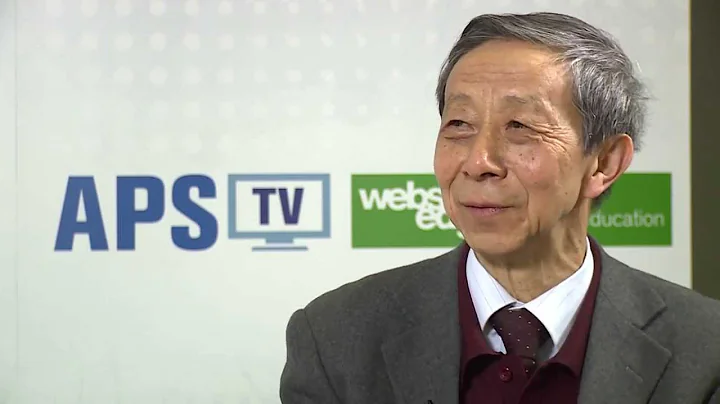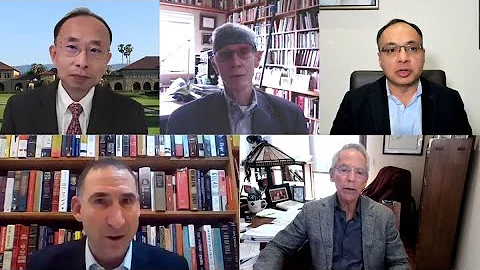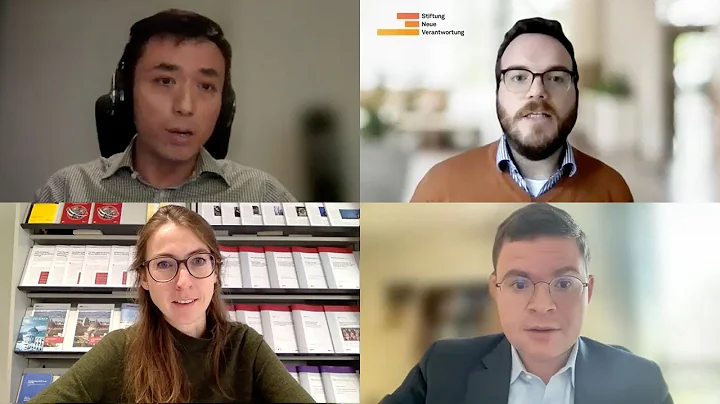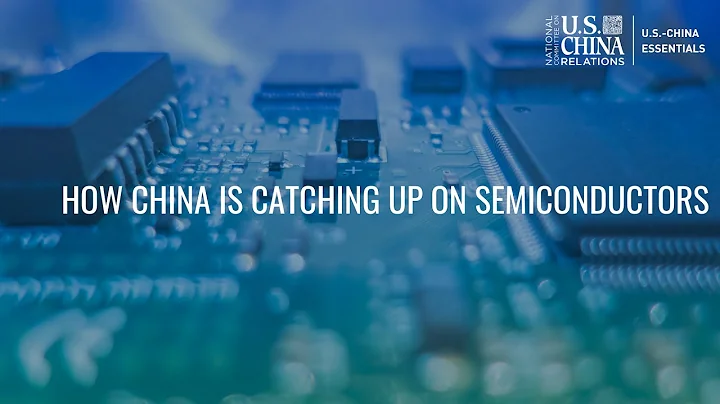
Xie Xide, the mother of China’s semiconductors and the first female principal of New China (file picture)
One day in mid-May 1956, my husband Cao Tianqin and I were accepted as probationary members of the Communist Party of China in our respective party branches. Originally, the party branch of the Department of Physics of Fudan University wanted to invite Cao Tianqin to participate when discussing my party membership. Later, I learned that on the same afternoon, the party branch of the Shanghai Institute of Physiology and Biochemistry, Chinese Academy of Sciences also wanted to discuss Tianqin’s party membership. This was a very unforgettable day for both of us. From then on, we were not only partners in life, but also comrades determined to fight for the cause of the proletariat for life. I wanted to fly home immediately that day. After we got home, we exchanged views on the status of our respective branch meetings and the opinions they had on us. We were all very excited and felt it was an honor to be accepted as a member of the proletarian vanguard. But they all feel that it is still not up to standard, so they have to keep working hard in the future. This idea of a new party member lasted until 1982, when I was on my way to Beijing to attend the 12th National Congress of the Communist Party of China. Comrade Guodong reminded me that I had been a member of the party for 26 years. I realized that I could no longer consider myself a new party member. Of course, in front of old comrades, I will always be new.
After dinner on that unforgettable day, Li Lin and Zou Chenglu who lived downstairs gave us a congratulatory party. Zhang Youduan and Chen Ruiming also participated. They were all Tianqin's classmates in the UK. They all worked at the Chinese Academy of Sciences in Shanghai at that time. Now the four of them are also members of the Communist Party of China, which shows the expansion of the party's intellectual team. Intellectuals transform from non-party members to Communist Party members through a different process. Cao Tianqin passed away on January 8 last year. In this short article, I try to write down how the two of us received the care of the party and embarked on the road of revolution, as a tribute to the 75th anniversary of the party.
I was born in the same year as the Communist Party of China, and Tian Qin was born a year earlier. We were born into intellectual families. In China's childhood, warlords fought in chaos and the people were in dire straits. Not only did I read the infuriating Opium War , Sino-Japanese War of 1894, British and French Allied Forces , Eight-Power Allied Forces and other historical facts in history books, as well as many unequal treaties that were humiliating and humiliating the country, but I also personally experienced September 1st Eight , the atmosphere of the Japanese military police in Peiping after 128. The education our family gave us was to study hard, and knowledge is always useful. In the summer of 1937, the Marco Polo Bridge Incident happened, starting the eight-year Anti-Japanese War. I also began to live a life of escape, and left the country in the summer of 1937. Beiping, he went to Wuhan and Changsha successively. In the summer of 1938, he contracted bone and joint tuberculosis after graduating from Changsha Fuxiang Girls' High School. He became ill in Guiyang and was suspended from school for four years. After graduating from middle school, Cao Tianqin entered the chemistry department of Yenching University in Peiping. This was a school run by Americans and could barely survive under Japanese rule. He still cherished the dream of "saving the country through science". In his letters to me, in addition to encouraging me to rest in peace and recuperate, he also sent me from time to time his reading experience of extracurricular reading, or some reports from his internship in the factory during the holidays. At that time, he hoped to save China by dedicating himself to chemistry. Around 1940, he and his classmates analyzed the situation at that time and believed that a war between Japan and the United States was inevitable. In the spring of 1941, he and some classmates left Peiping and went south. They first went to Shanghai to live in the concession at the time, and then entered in two groups through the Japanese blockade. The rear of the war. He chose to take the northern route and arrived in Xi'an via Kaifeng, where he participated in the industrial cooperation movement of New Zealand's friend Rewi Alley. He worked at the Comprehensive Industrial Research Institute in Shuangshipu, Feng County, Shaanxi at that time, and analyzed some ores. The following year, he moved to work as a manager of a leather cooperative in Lanzhou. His desire to save the country through the chemical industry was partially satisfied during this period of work, but he was indeed not satisfied with staying in Lanzhou. His eldest brother joined the revolution relatively early and left school to go to the liberated areas, which had a certain influence on Cao Tianqin's thinking.
In December of the same year when he arrived at Shuangshipu , the Pearl Harbor incident occurred and the United States and Japan were at war. Yenching University was forced to close its doors in Peking and soon moved to Huaxiba, Chengdu to resume school.Cao Tianqin believed that he should complete his university studies and went to Chengdu in 1943 to continue his studies. At that time, the Anti-Japanese War had been going on for six years, and the lives of some students studying in Chengdu who had left their hometowns were very difficult. Some people developed lung disease, and some died from it. Some of the classmates who left Peiping at the same time as him rushed to the liberated areas. Although we are not on the road to revolution, we have all seen the corruption of the Kuomintang government, and our intentions are very clear, and we envy the determination of those friends.
On the eve of graduation, Cao Tianqin faced an important decision. Should he go to the liberated areas or stay in Chengdu to pursue graduate studies? I had recovered from my illness and was studying at Xiamen University in Changting, western Fujian. He was afraid that after going to the liberated areas, it would be even more difficult to meet me. In the midst of an ideological struggle, through a friend's introduction, he was hired to work at the Sino-British Science Cooperation Center in Chongqing, led by British scientist Dr. Joseph Needham. The library provided scientific research medicines and books to some universities and research units on the rear lines of the Anti-Japanese War. He traveled with Joseph Lee and his wife in the southwest and northwest of the motherland. On the one hand, he assisted Joseph Needham in collecting materials for writing the history of Chinese science, and on the other hand, he also learned about the scientific research situation of some universities and research units. Under the very difficult conditions at that time, many scientific workers still worked hard. Cao Tianqin was very moved when he saw this. He was deeply impressed by the working spirit of these scientists. In 1946, he received a scholarship from the British Council to study at the University of Cambridge in England. Before going abroad, he went to Changting to visit me, and we got engaged. Since the Second World War had just ended, transportation to Britain was still irregular and there were no regular ships or planes. He was forced to wait while working at the British Council in Nanjing and Shanghai. At that time, I also graduated from Xiamen University, came to Nanjing to take the exam to study abroad, and later worked at Hujiang University in Shanghai. Therefore, before he went abroad, we reunited in Nanjing and Shanghai. Unexpectedly, we were separated for another six years.
In 1947, I was admitted to Smith College in the United States as a graduate student and teaching assistant. I left for the United States in August of that year. After getting a master's degree in 1949, he went to the Massachusetts Institute of Technology in Cambridge, Massachusetts, to study for a doctoral degree, just across the Atlantic Ocean from Cambridge, England. Cao Tianqin planned to go to the United States for a period of research after receiving his Ph.D., and then return to China together after I obtained my degree. We all heard from family members about the situation in New China after liberation, and we were very excited. The Chinese people have stood up since then. Many Chinese students in the United States and the United Kingdom rushed back to their motherland to participate in the construction.
The Korean War broke out in 1950. The following year the Chinese People's Volunteers won the war in North Korea, and the U.S. government did not allow Chinese students studying science and engineering to return to the country. Although Cao Tianqin had been invited by Harvard University and Cornell University to do research work at that time, due to the decision of the US government, he gave up his plan to go to the United States and insisted that I must go to the UK in the spring of 1952. Because he has already made contact to work at the Shanghai Institute of Physiology and Biochemistry, Chinese Academy of Sciences, when he returns to China. He disappointed me by changing his plans to go to America. At the same time, what I was most worried about was whether I would have the opportunity to carry out the semiconductor research that was just started at that time after returning to China. After some ideological struggle, I finally made preparations to go to England based on Tianqin’s advice. Although the British government had recognized New China at that time, it had not yet established diplomatic relations. The UK requires me to have proof of leaving the UK in 3 months, but I have to go to the UK to get married before I can be allowed to leave the US. At this difficult moment, Dr. Needham personally went to the relevant departments in the UK to guarantee that I would leave the UK in three months. Only then did I get the travel permit issued to me by the UK, and finally set off for the UK from New York in May 1952. My father, who was in Philippines at that time, was firmly opposed to my return to China. He wanted me to stay there after arriving in the UK, or return to the United States. I didn't listen to him. After returning to China until his death in Taiwan in 1986, I never received another letter from him. This was very sad for me because he loved me very much. Among his belongings, I found our wedding photos, and he made many copies of them.After
got married in the UK, we took the passenger ship "Guangzhou" from Southampton Port in the UK in August 1952. It took us a month to arrive in Hong Kong. In late September, we entered Shenzhen via Luohu amid the sound of the broadcast of "Five-star red flag fluttering in the wind". I met many old classmates in Guangzhou, and the happiest thing was meeting Professor Hou Renzhi, a historical geographer and teacher at Tianqin Junior High School from Beijing. He came all the way from Beijing to help Lingnan University at that time (not long after). Changed to () by teachers of Sun Yat-sen University). They all told us how to draw a clear line from the past and carry out ideological transformation. At that time, the climax of the return of international students to China had passed, and there was only one cadre in the Guangdong Provincial Department of Education who was also in charge of receiving returning international students. After completing the formalities, we took the train north and arrived at our destination, Shanghai, on October 1. After another short rest, we went to Beijing to visit my mother, Cao Tianqin's parents, other family members and friends. Some old classmates from Tianqin joined the revolution on the eve of liberation and changed their names. On the eve of liberation, his old classmate Wu Weizheng was killed by agents while protecting the factory. Tianqin was very sad. To commemorate him, we later named our son Wei Zheng.
immediately started working intensively after returning to Shanghai. Tianqin started to establish a laboratory at the Shanghai Institute of Physiology and Biochemistry. I originally contacted Professor Zhou Tongqing to work at Shanghai Jiao Tong University. After adjustment by the department, I also followed Professor Zhou to Fudan University and started busy teaching work. I was in charge of courses in the Department of Physics and the Department of Mathematics. At that time, everything was booming, and there were many students in both departments. It was very different from the Department of Mathematics and Physics at Xiamen University when I was there. At that time, it was also emphasized that we should be one-sided, study the Soviet Union, use Soviet teaching materials, or compile our own handouts. Therefore, it is an opportunity and a challenge for me to step onto the podium for the first time. I am quite nervous and busy. Fortunately, my classmates are very kind to me. This year happens to be the 40th anniversary of graduation for the freshmen who entered the school that year. Not long ago, students from all over the country gathered together at their alma mater. Many of them are already the backbone of scientific research institutes, and some of them have retired. I have always believed that they are both my students and my first teachers in teaching in New China.
In the spring of 1956, the country began to formulate a 12-year scientific plan. The Chinese Academy of Sciences held a report meeting on semiconductors in Beijing. I was pregnant at the time and was about to give birth, so I was unable to attend. However, the sign that semiconductor work was about to start in my country eliminated my worries before returning to China. In order to better participate in the march to science under the leadership of the party, we mustered up the courage and submitted applications to join the party to our respective party branches. We know that unlike many comrades who joined the party before liberation, we have not experienced the test of bullets and bullets, and we must have higher requirements for ourselves in peacetime. In this regard, Cao Tianqin is a role model for me to learn from. At a critical juncture on our way forward, he made an important and correct decision. Now that he has left me, I will continue to move forward bravely under the leadership of the party.
(This article was written in June 1996, and is included in "Selected Works of Xie Xide" and "Teacher's Reminiscences of Xie Xide". It was sometimes abridged when included in this book)

"Great Voices, Sounds of Delight, Virtue and Kindness Quartet - Collection of Essays to Commemorate the Centenary of the Birth of Mr. Xie Xide"
Edited by the Department of Physics, Fudan University
Published by Fudan University Press
Author: Xie Xide
Editor: Jin Jiuchao





















